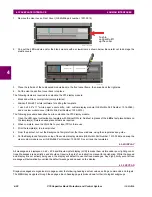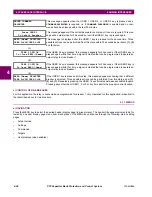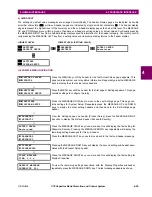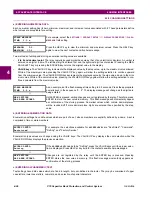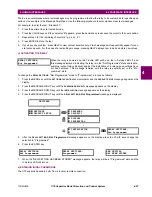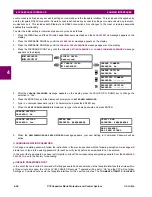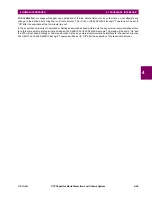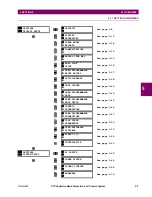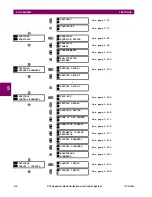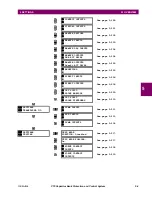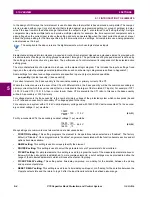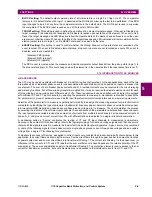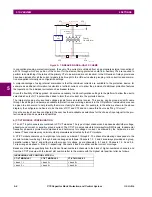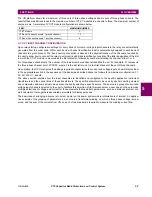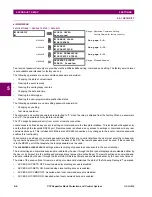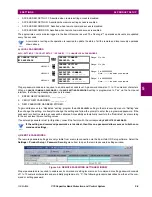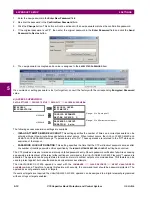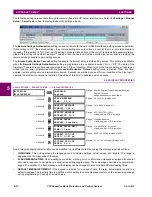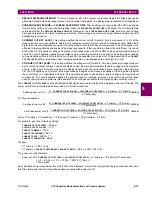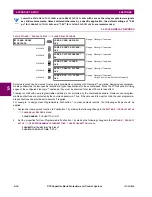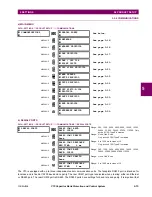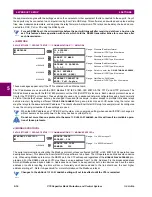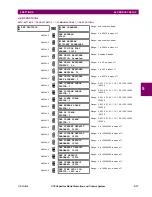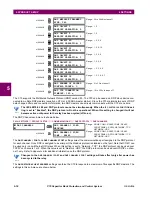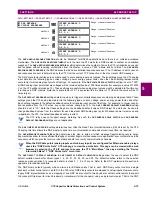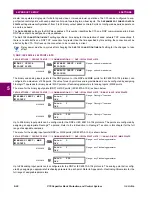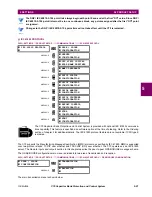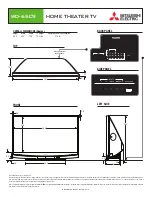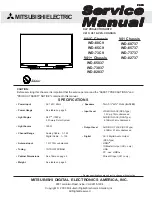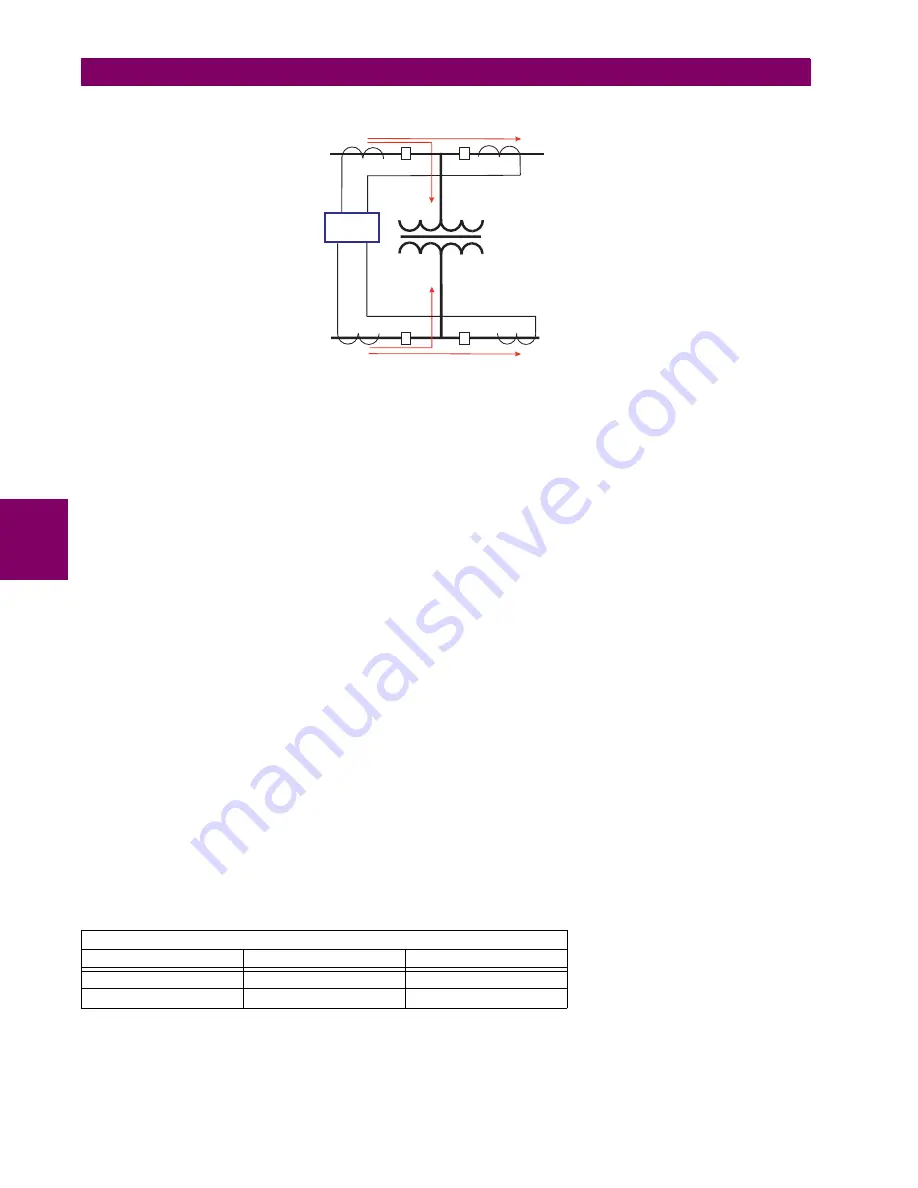
5-6
C70 Capacitor Bank Protection and Control System
GE Multilin
5.1 OVERVIEW
5 SETTINGS
5
Figure 5–1: BREAKER-AND-A-HALF SCHEME
In conventional analog or electronic relays, the sum of the currents is obtained from an appropriate external connection of
all CTs through which any portion of the current for the element being protected could flow. Auxiliary CTs are required to
perform ratio matching if the ratios of the primary CTs to be summed are not identical. In the UR series of relays, provisions
have been included for all the current signals to be brought to the UR device where grouping, ratio correction and summa-
tion are applied internally via configuration settings.
A major advantage of using internal summation is that the individual currents are available to the protection device; for
example, as additional information to calculate a restraint current, or to allow the provision of additional protection features
that operate on the individual currents such as breaker failure.
Given the flexibility of this approach, it becomes necessary to add configuration settings to the platform to allow the user to
select which sets of CT inputs will be added to form the net current into the protected device.
The internal grouping of current and voltage signals forms an internal source. This source can be given a specific name
through the settings, and becomes available to protection and metering elements in the UR platform. Individual names can
be given to each source to help identify them more clearly for later use. For example, in the scheme shown in the above
diagram, the configures one Source to be the sum of CT1 and CT2 and can name this Source as “Wdg 1 Current”.
Once the sources have been configured, the user has them available as selections for the choice of input signal for the pro-
tection elements and as metered quantities.
b) CT/VT MODULE CONFIGURATION
CT and VT input channels are contained in CT/VT modules. The type of input channel can be phase/neutral/other voltage,
phase/ground current, or sensitive ground current. The CT/VT modules calculate total waveform RMS levels, fundamental
frequency phasors, symmetrical components and harmonics for voltage or current, as allowed by the hardware in each
channel. These modules may calculate other parameters as directed by the CPU module.
A CT/VT module contains up to eight input channels, numbered 1 through 8. The channel numbering corresponds to the
module terminal numbering 1 through 8 and is arranged as follows: Channels 1, 2, 3 and 4 are always provided as a group,
hereafter called a “bank,” and all four are either current or voltage, as are channels 5, 6, 7 and 8. Channels 1, 2, 3 and 5, 6,
7 are arranged as phase A, B and C respectively. Channels 4 and 8 are either another current or voltage.
Banks are ordered sequentially from the block of lower-numbered channels to the block of higher-numbered channels, and
from the CT/VT module with the lowest slot position letter to the module with the highest slot position letter, as follows:
INCREASING SLOT POSITION LETTER -->
CT/VT MODULE 1
CT/VT MODULE 2
CT/VT MODULE 3
< bank 1 >
< bank 3 >
< bank 5 >
< bank 2 >
< bank 4 >
< bank 6 >
UR-series
relay
CT1
CT2
CT3
CT4
Winding 1
Winding 2
Power
transformer
827791A3.CDR
through current
Winding 1
current
Summary of Contents for UR Series C70
Page 2: ......
Page 10: ...x C70 Capacitor Bank Protection and Control System GE Multilin TABLE OF CONTENTS ...
Page 344: ...5 220 C70 Capacitor Bank Protection and Control System GE Multilin 5 10 TESTING 5 SETTINGS 5 ...
Page 586: ...D 10 C70 Capacitor Bank Protection and Control System GE Multilin D 1 OVERVIEW APPENDIXD D ...

